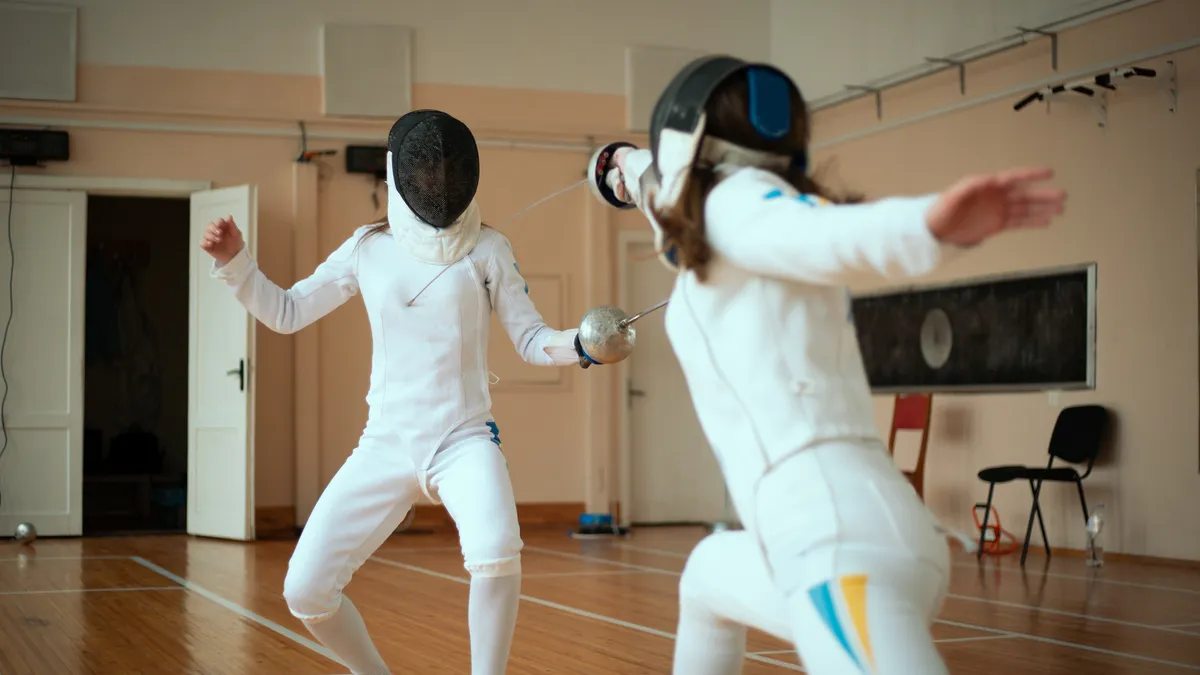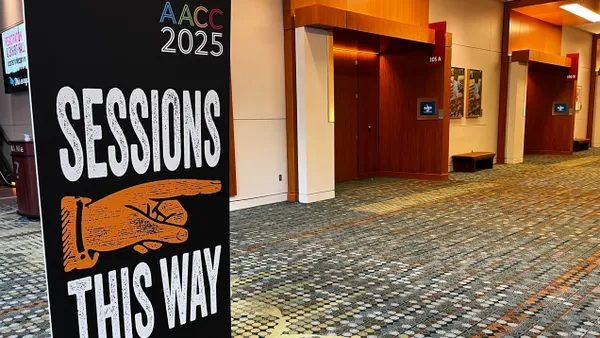Dive Brief:
- Private school students and those from wealthier backgrounds listed more extracurricular activities and top-tier leadership roles on their college applications than their public school and less affluent counterparts, according to prepublication research published this month by Brown University’s Annenberg Institute. These students also reported more accomplishments and distinctions tied to their activities.
- The same is true for White and Asian college applicants, the research found. On average, White and Asian students reported 63% more activities with top-level leadership positions than did Black applicants.
- But the findings do not mean colleges should return to or lean harder on standardized testing in their admissions process, researchers said. Instead, colleges should consider limiting how many extracurriculars applicants can list, they said.
Dive Insight:
Extracurricular activities play a significant role in college admissions decisions, especially for institutions that emphasize a holistic process. The test-optional movement has also pushed colleges to more heavily focus on students' activities outside of the classroom.
But as with standardized testing, inequity can permeate the extracurricular section of a college application. Some highly prized activities, like fencing, might cost families thousands of dollars in lessons, coaching fees and transportation costs. Even more traditional sports still require uniform or other costs and can come at the expense of a student earning money through a part-time job.
"I have a kindergartner and we're already having to budget for piano lessons, soccer, you name it," said Julie J. Park, a professor of education at the University of Maryland and a co-author of the working paper.
Roughly 860,000 students, or about 41% of Common Application users, applied to at least one selective college during the 2018-2019 and 2019-2020 cycles through the platform. About a quarter of the sample were first-generation students, and a quarter were low-income students, as determined by use of application fee waivers.
Researchers analyzed students' extracurricular activity descriptions across almost 6 million college applications.
Students who received application fee waivers reported 55.9% fewer top-level leadership roles — such as captain, president or founder — than other applicants who used the Common App. And private school students listed an average of 17.3% more activities than did public school students. They also report 35.8% more sports activities.
But ignoring extracurricular activities or requiring standardized test scores wouldn't necessarily fix the issue.
The disparity in reported extracurriculars doesn't mean students from marginalized backgrounds aren't holding leadership positions, Park said.
Across socioeconomic background and race and ethnicity, students largely reported top-level leadership roles at equal rates, researchers found.
The difference comes from the number of activities listed. Students from underrepresented backgrounds reported fewer activities than their counterparts.
"Groups that have traditionally had some advantage in the process tend to have a broader opportunity to try more activities," Park said.
Each Common App user listed an average of seven activities, according to the paper. To help level the playing field, researchers recommend colleges limit the number of activities a prospective student can list to four or five.
Park also advocated for colleges to value the day-to-day work that many underrepresented students do outside of traditional activities.
"Some colleges are trying to encourage students to use the extracurricular field on an application to report activities like caregiving or being your family's interpreter," Park said. "Did you take care of your siblings? Did you work 20 hours all through high school? That's huge."














